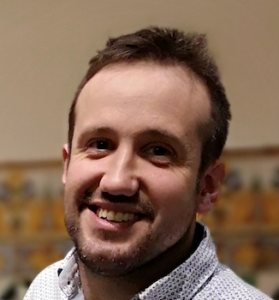Read Aleix’s Emerging Investigator article ‘Kinetic Monte Carlo simulations of the dry reforming of methane catalyzed by the Ru (0001) surface based on density functional theory calculations‘, DOI: 10.1039/D1CY02366G
1. How do you feel about Catalysis Science & Technology as a place to publish research on this topic?
Catalysis Science & Technology is read by people from several backgrounds who share a genuine interest in the field. It is a great medium to publish fundamental work in computational heterogeneous catalysis, like the one showcased in this special collection.
2. What aspect of your work are you most excited about at the moment, and what do you find most challenging about your research?
I am most excited about the recent advances in artificial intelligence and how we can combine them with ab initio methods to understand catalysts via a theoretical approach. I hope this can lead us to propose new materials to foster the transition from fossil-based fuels to renewable energy sources. Many challenges lie ahead, though, as we are still far from the theory-guided design of optimized catalytic materials.
3. In your opinion, what are the most important questions to be asked/answered in this field of research?
We need to improve the state-of-the-art modeling methods, as they are not accurate enough and are limited to simple catalytic models, hampering the predictive power of simulations. Besides, I think there is still plenty of work to do to understand the dynamics of heterogeneous catalysts, which will be increasingly possible with further methodological developments.
4.Can you share one piece of career-related advice or wisdom with other early career scientists?
Be resilient; opportunities will arise if you do not give up and follow your intuition.
Find out more about the Comas-Vives group on their webpage
Connect with Aleix on Linkedin











